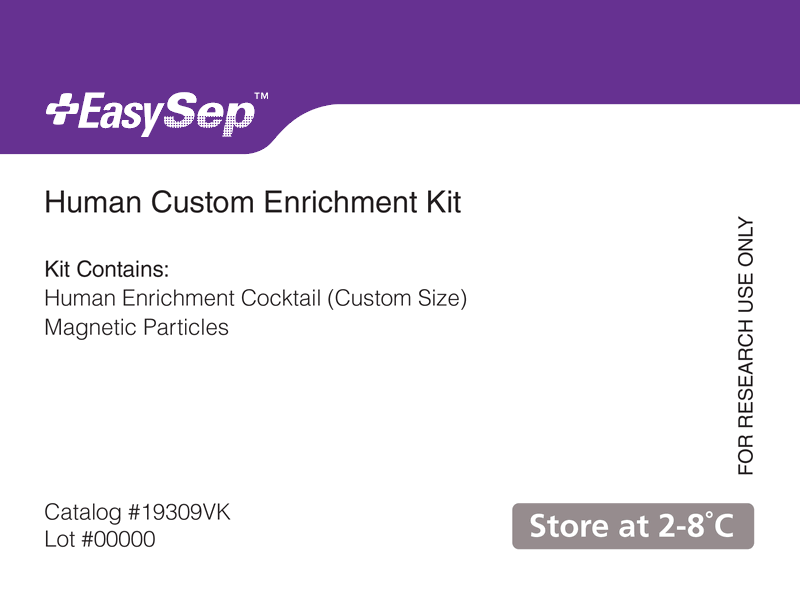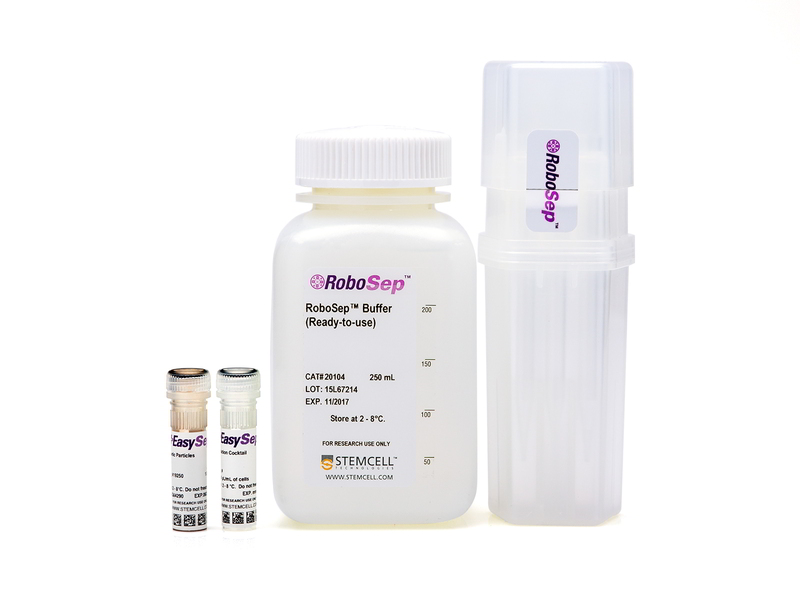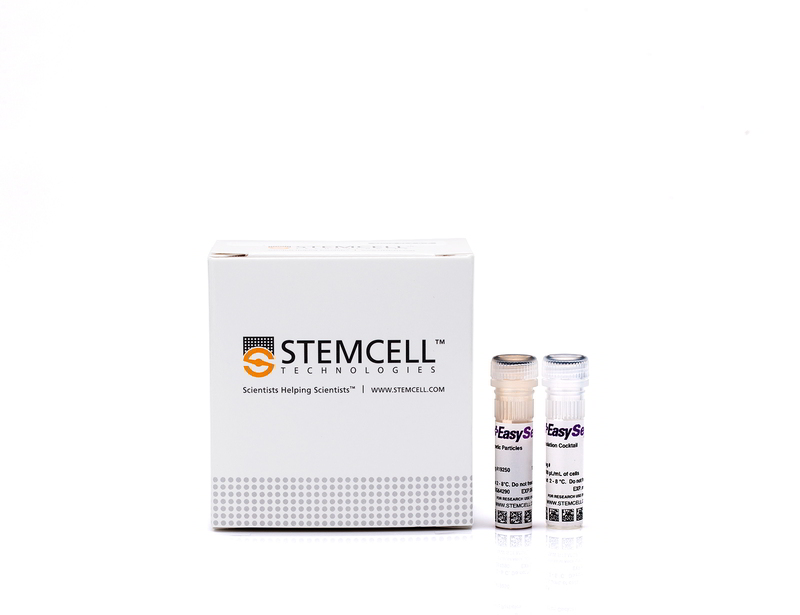EasySep™ Human Custom Enrichment Kit
Immunomagnetic negative selection kit
概要
The EasySep™ Human Custom Enrichment Kit is designed to isolate any cell type of interest from fresh or previously frozen peripheral blood mononuclear cells by negative selection. STEMCELL Technologies offers a wide selection of antibodies for custom separation and will work with you to isolate a cell type of interest. Please contact our technical support team at techsupport@stemcell.com for more information.
Components
- EasySep™ Human Custom Enrichment Kit (Catalog #19309)
- EasySep™ Human Custom Enrichment Cocktail
- EasySep™ Magnetic Particles, 1 mL
- RoboSep™ Human Custom Enrichment Kit with Filter Tips (Catalog #19309RF)
- EasySep™ Human Custom Enrichment Cocktail
- EasySep™ Magnetic Particles, 1 mL
- RoboSep™ Buffer (Catalog #20104)
- RoboSep™ Filter Tips (Catalog #20125)
Magnet Compatibility
• EasySep™ Magnet (Catalog #18000)
• “The Big Easy” EasySep™ Magnet (Catalog #18001)
• RoboSep™-S (Catalog #21000)
Subtype
Cell Isolation Kits
Cell Type
B Cells, Dendritic Cells, Granulocytes and Subsets, Hematopoietic Stem and Progenitor Cells, Macrophages, Marrow Stromal Cells, Mesenchymal Stem and Progenitor Cells, Monocytes, Mononuclear Cells, Myeloid Cells, NK Cells, Other, Plasma, T Cells
Species
Human
Sample Source
Adipose Tissue, Bone Marrow, Buffy Coat, Compact Bone, Cord Blood, Leukapheresis, Other, PBMC, PMNC, Spleen, Whole Blood
Selection Method
Negative
Application
Cell Isolation
Brand
EasySep, RoboSep
Area of Interest
Immunology, Stem Cell Biology
技术资料
| Document Type | 产品名称 | Catalog # | Lot # | 语言 |
|---|---|---|---|---|
| Safety Data Sheet | EasySep™ Human Custom Enrichment Kit | 19309 | All | English |
| Safety Data Sheet | RoboSep™ Human Custom Enrichment Kit with Filter Tips | 19309RF | All | English |
数据及文献
Publications (1)
Blood 2010 JAN
Evidence for a cross-talk between human neutrophils and Th17 cells.
Abstract
Abstract
Interleukin-17A (IL-17A) and IL-17F are 2 of several cytokines produced by T helper 17 cells (Th17), which are able to indirectly induce the recruitment of neutrophils. Recently, human Th17 cells have been phenotypically characterized and shown to express discrete chemokine receptors, including CCR2 and CCR6. Herein, we show that highly purified neutrophils cultured with interferon-gamma plus lipopolysaccharide produce the CCL2 and CCL20 chemokines, the known ligands of CCR2 and CCR6, respectively. Accordingly, supernatants from activated neutrophils induced chemotaxis of Th17 cells, which was greatly suppressed by anti-CCL20 and anti-CCL2 antibodies. We also discovered that activated Th17 cells could directly chemoattract neutrophils via the release of biologically active CXCL8. Consistent with this reciprocal recruitment, neutrophils and Th17 cells were found in gut tissue from Crohn disease and synovial fluid from rheumatoid arthritis patients. Finally, we report that, although human Th17 cells can directly interact with freshly isolated or preactivated neutrophils via granulocyte-macrophage colony-stimulating factor, tumor necrosis factor-alpha, and interferon-gamma release, these latter cells cannot be activated by IL-17A and IL-17F, because of their lack of IL-17RC expression. Collectively, our results reveal a novel chemokine-dependent reciprocal cross-talk between neutrophils and Th17 cells, which may represent a useful target for the treatment of chronic inflammatory diseases.



